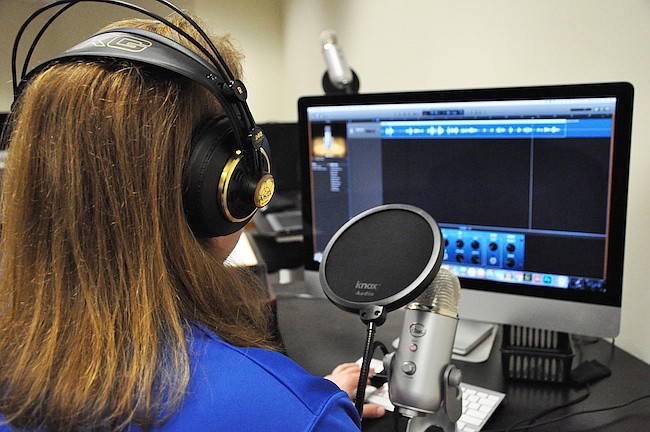- April 24, 2024
-
-
Loading

Loading

“Raise your hands if you’ve heard of Smosh, the Fine Brothers or PewDiePie,” a who’s-who audience of Winter Parkers assembled at the University Club was asked last June. In the mostly baffled crowd, there were few raised hands of those who could properly identify the three YouTube stars who are the country’s most popular celebrities among American teenagers.
And thus the tone was set for the two-day Winter Park Dialogue hosted by the prestigious Aspen Institute, which selected Winter Park as one of only five libraries in the nation to engage in a discussion about the future of libraries.
The Winter Park Dialogue brought world-renowned experts in technology, libraries and trends in media together with community leaders to talk about how new technologies, shifting demographics and a host of community-specific factors will shape how the Winter Park Public Library serves its community.
On Oct. 18, “Winter Park Rising to the Challenge” was released, the final report outlining the outcomes from the two-day June event. Unsurprisingly, “The Library as a Platform for Learning” was a key theme. For 131 years, the WPPL has served as a proud educational institution for our city, but thinking about the library as a platform represents an evolution in thinking about what we do and how we do it.
“Platform” is one of those words that feels like it came out of a think tank…it sounds good but what does it really mean? When we say the library is a platform for learning, we mean the library and all of its resources (facilities, staff, digital assets, books, programs and services) become a foundation for our users to experience learning.
One way to think about it is to imagine the WPPL to be the operating system on a very powerful computer. Then the specific programs and materials and services we offer are like apps. And you don’t have to just use the apps we provide. Other organizations and individuals can write their own apps or work with us to develop new ones that meet their specific needs, but it all runs on the same operating system.
When explaining the library as a platform for learning, WPPL Executive Director Shawn Shaffer likes to keep it even simpler. “We’re the large green base from a Lego set,” she says. “That is the piece that holds the creations together and supports whatever you want to build.”
The participants in the dialogue were from many different backgrounds, but there was universal agreement that there is a crucial role for the WPPL as a platform for early learning and K-12 education. With its ability to reach families with toddlers and preschoolers, the library is well suited to be the place that bridges formal and informal learning, but is also not limited by place. The WPPL’s new community librarian takes programs and materials directly to daycare facilities, schools and places young people gather. This past summer, she took our Book Bike to Shady Park to hold an informal program and distribute books. The library itself is going viral.
In the rapidly evolving environment of media and technology, there are endless opportunities for the library to ease the transition for both organizations and individuals. This past fall, every Orange County high school student received a laptop from the school system and middle schoolers are soon to follow. There are opportunities for the WPPL to help students be good “digital citizens,” using the technology productively and responsibly. As teachers experiment with new models of instruction, the library is well positioned to support both teachers and students.
And while the school system may have provided the hardware, it cannot provide the connectivity students need to make the most of it. In a state where nearly 60 percent of Florida’s public school students receive free or reduced lunches, there is enormous inequality in terms of access. While the community works to bring connectivity to every home in Winter Park, the WPPL is part of the solution for addressing equal access.
There is also a new digital divide the library can overcome. While the divide has previously been largely about access to hardware and broadband services, tomorrow’s gap will be in the ability to synthesize information, evaluate content and create content. Libraries can teach its users how effectively evaluate the quality of information accessed and differentiate between reliable sources and the flood of advertisements and propaganda masquerading as unbiased fact. Rather than be overwhelmed by the quantity on info online, we will teach children and adults alike how to harness it and carefully choose the best of it.
In terms of content creation, we can provide a low-stress environment without the pressure of grades or barriers of not owning the right equipment or software, for students who want to design a website, learn to code, experiment with digital media creation and play with other creative tools to become networked, 21st century learners.
As we look to the future and start putting these ideas more fully into practice, our priority is to network with educational organizations around the community so our platform can be used for their maximum benefit. To use Shawn Shaffer’s metaphor, we want to invite them to combine their Legos with our Legos and build something incredible supported by our big green base.